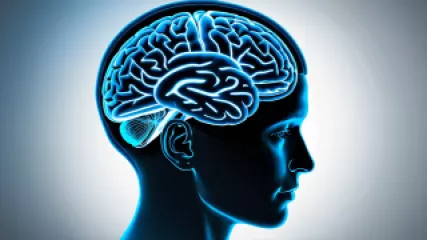Understanding Social Anxiety: Research Insights
Social anxiety is a common mental health condition that affects millions of people worldwide. It is characterized by an overwhelming fear of social situations and a constant worry about being judged or embarrassed in front of others. Individuals with social anxiety often experience intense distress, which can significantly impact their daily lives and overall well-being.
In recent years, there has been a growing body of research dedicated to understanding social anxiety more deeply. Scientists and experts have conducted various studies to explore the causes, symptoms, and effective treatment options for this condition. This article aims to provide a comprehensive summary of some key research insights into social anxiety.
1. Prevalence and Impact
Social anxiety is a prevalent mental health condition, affecting approximately 7% of adults in the United States alone. It is equally common among men and women, and it typically begins during adolescence or early adulthood. Social anxiety can have a significant impact on various aspects of a person's life, including their relationships, education, and career.
Research suggests that individuals with social anxiety are more likely to experience difficulties in forming and maintaining relationships. They may struggle with initiating conversations, making eye contact, or participating in social activities. As a result, they may feel isolated and lonely, leading to lower self-esteem and a decreased quality of life.
2. Risk Factors
Several factors contribute to the development of social anxiety. Research has identified both genetic and environmental factors that increase an individual's vulnerability to this condition. Studies have shown that having a family history of anxiety disorders or other mental health issues can increase the risk of developing social anxiety.
Additionally, certain personality traits, such as high levels of introversion, shyness, and neuroticism, have been associated with social anxiety. Childhood experiences, such as bullying, teasing, or traumatic events, can also contribute to the development of this condition.
3. Neurobiological Factors
Scientists have used neuroimaging techniques to study the brain activity of individuals with social anxiety. These studies have revealed specific patterns of brain activation and connectivity that are associated with social anxiety symptoms. For example, areas of the brain involved in fear processing, such as the amygdala, show heightened activation in individuals with social anxiety.
Research has also shown that individuals with social anxiety have an increased sensitivity to social cues, such as facial expressions of fear or disapproval. This heightened sensitivity may contribute to the exaggerated fear response observed in social anxiety.
4. Cognitive Processes
Cognitive processes play a crucial role in the maintenance of social anxiety. Individuals with social anxiety tend to have negative self-beliefs and distorted thinking patterns related to social situations. They may engage in excessive self-criticism, overestimation of negative outcomes, and attention biases towards social threats.
Several cognitive-behavioral therapies aim to target these maladaptive cognitive processes and help individuals reframe their thoughts and beliefs about social situations. Research has shown that cognitive-behavioral therapy (CBT) is an effective treatment for social anxiety, leading to significant reductions in symptoms and improvements in overall functioning.
5. Treatment Options
In addition to cognitive-behavioral therapy, there are other evidence-based treatment options available for individuals with social anxiety. Medications, such as selective serotonin reuptake inhibitors (SSRIs), have been found to be effective in reducing anxiety symptoms. These medications work by regulating neurotransmitters in the brain that are involved in mood and anxiety regulation.
Furthermore, research has also explored the potential benefits of complementary and alternative treatments, including mindfulness-based interventions, exercise, and dietary changes. While more research is needed in these areas, initial findings suggest that these approaches may have a positive impact on reducing anxiety symptoms.
6. Self-Help Strategies
Alongside professional treatment, there are several self-help strategies that individuals with social anxiety can incorporate into their daily lives. These strategies can help manage anxiety symptoms and improve overall well-being. Some effective self-help strategies include:
- Social Support: Building a network of supportive friends and family members who understand and empathize with social anxiety can provide a valuable source of support.
- Relaxation Techniques: Practicing relaxation techniques, such as deep breathing, meditation, or progressive muscle relaxation, can help reduce anxiety and promote a sense of calm.
- Challenging Negative Thoughts: Engaging in cognitive restructuring exercises, such as identifying and challenging negative thoughts or beliefs about social situations, can help change unhelpful thinking patterns.
- Gradual Exposure: Gradually exposing oneself to feared social situations can help desensitize anxiety responses over time. This approach, known as exposure therapy, is a core component of cognitive-behavioral therapy.
Conclusion
Social anxiety is a complex and multifaceted mental health condition that can significantly impact an individual's life. However, through extensive research, we have gained valuable insights into the causes, mechanisms, and treatment options for social anxiety.
Understanding the prevalence, risk factors, neurobiological processes, cognitive mechanisms, and available treatment options can empower individuals with social anxiety to seek appropriate help and support. By incorporating evidence-based strategies and seeking professional guidance, individuals with social anxiety can effectively manage their symptoms and improve their overall well-being.
Research Insights on Social Anxiety: Henry Cook






